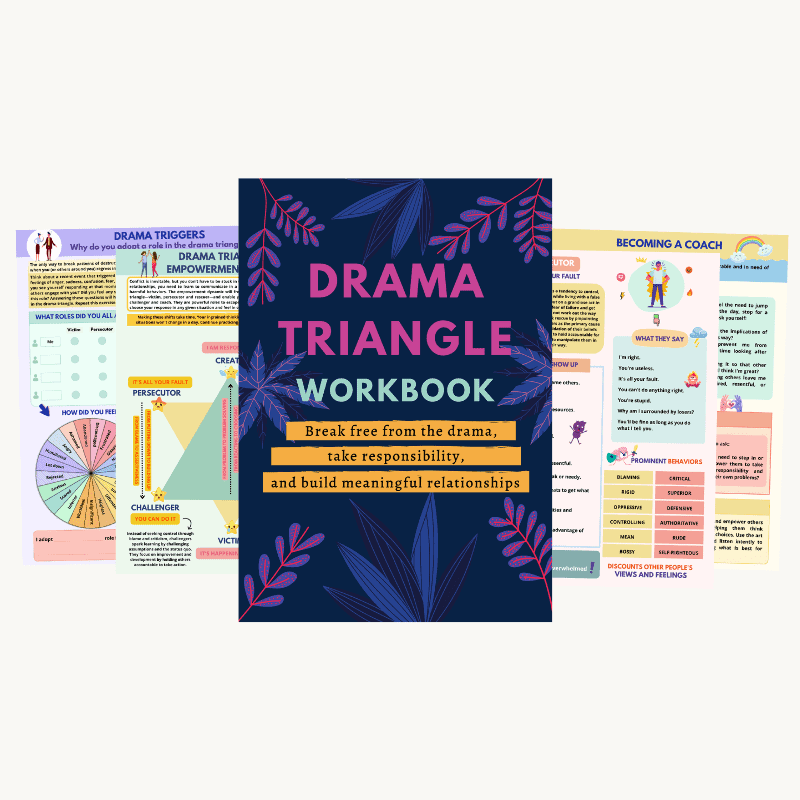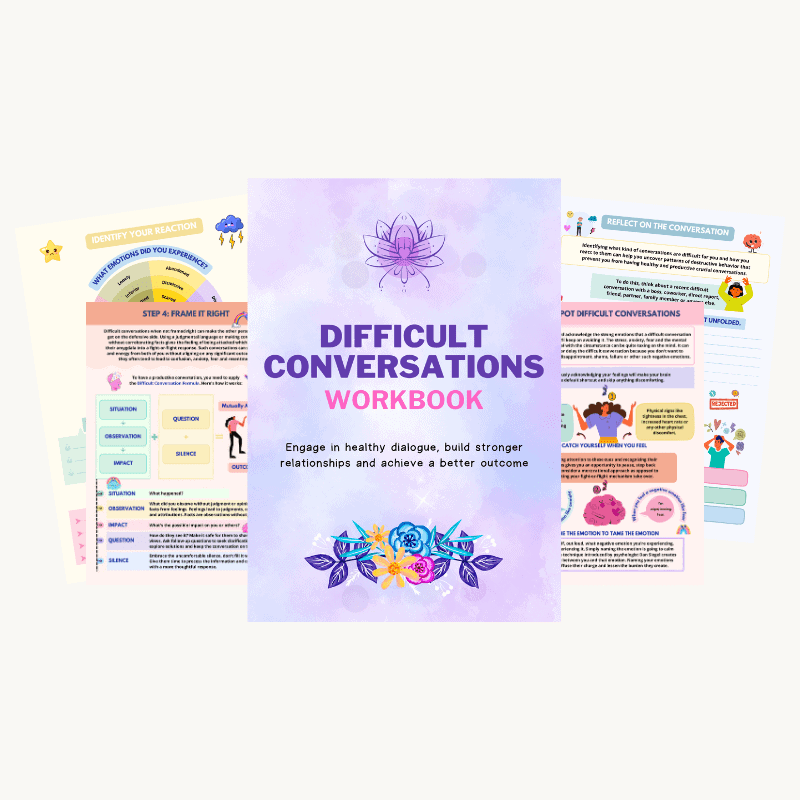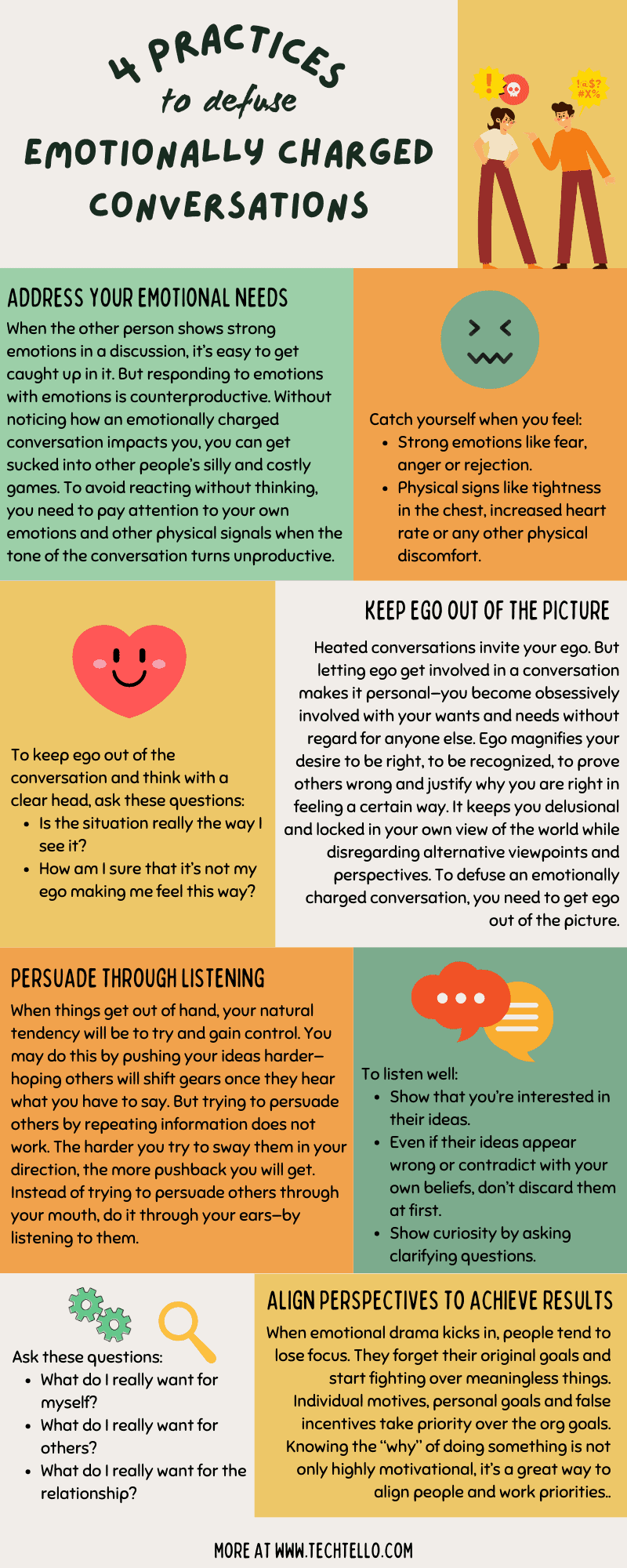How to Defuse an Emotionally Charged Conversation

Sometimes, for no good reason, conversations can get heated. Handling an unpleasant emotional reaction can trigger anxiety, cloud your judgment and make you react in unexpected ways.
Losing your calm in such moments, reacting to the other person and saying mean things is a deadly mistake.
You may not only lose the opportunity to bring the conversation back to normalcy and have a productive discussion, showing anger, frustration or judgment in emotionally charged conversations can potentially harm your relationship.
Discussions get messy because many people lack the skill to engage in meaningful discussions. When their ideas are challenged or someone disagrees with them, they turn to knee-jerk reactions instead of calmly thinking through their head.
Emotionally charged conversations are often spontaneous—they come out of nowhere. When you’re caught off-guard and expected to navigate complex interactions in real time, without knowing how to handle them, you’re most likely to act in self-defeating ways—with arguments, debates or other negative behaviors that do not solve the problem at hand and only makes matters worse.
Difficult conversations themselves may be complicated, but we can’t use a complicated system to bring them into balance. Under the pressure of the conversation, how would we remember what to do?
— Holly Weeks, Failure to Communicate
Learning to converse well with others, especially when it’s a tough one is crucial. Without practicing these essential skills, you’ll be at your worst behavior when the stakes are high or when it matters the most.
To defuse an emotionally charged conversation, follow these four practices:
Address your emotional needs
When the other person shows strong emotions in a discussion, it’s easy to get caught up in it. But responding to emotions with emotions is counterproductive.
Without noticing how an emotionally charged conversation impacts you, you can get sucked into other people’s silly and costly games.
To avoid reacting without thinking, you need to pay attention to your own emotions and other physical signals when the tone of the conversation turns unproductive. Catch yourself when you feel:
- Strong emotions like fear, anger or rejection.
- Physical signs like tightness in the chest, increased heart rate or any other physical discomfort.
Paying attention to these cues and recognizing their signs gives you an opportunity to pause, step back and consider a more rational approach as opposed to letting your fight-or-flight mechanism take over.
When you don’t stop to think about your feelings—including how they are influencing your behavior now, and will continue to do so in the future—you set yourself up to be a frequent victim of emotional hijackings. Whether you’re aware of it or not, your emotions will control you, and you’ll move through your day reacting to your feelings with little choice in what you say and do.
— Travis Bradberry, Emotional Intelligence 2.0
Next, name the emotion to tame the emotion. In other words, say to yourself, out loud, what negative emotion you’re experiencing, as you’re experiencing it.
For example: when you feel a negative emotion like anger, say “I’m experiencing anger.” Simply naming it is going to calm you down. This technique introduced by psychologist Dan Siegel creates a bit of space between you and that emotion. Naming your emotions tends to diffuse their charge and lessen the burden they create.
There’s another advantage of naming emotions this way. Matthew Lieberman is a Professor of Psychology at the University of California Los Angeles (UCLA). His research has shown that labeling of negative emotions, also called “affect labeling” can help people recover control. His fMRI brain scan research shows that labeling of emotions decreases activity in the brain’s emotional centers, including the amygdala. And once your amygdala is calm—that part of your brain involved in “fight-flight-freeze” mode—it gives you the chance to take a step back and come up with a more thoughtful response.
You can’t defuse an emotionally charged conversation by ignoring emotions or avoiding them. Knowing how you’re feeling is important to stay rational without being triggered or losing your calm.
Break Free from Drama
This workbook will enable you to recognize and eliminate the drama from your life and shift to empowerment.
Keep ego out of the picture
Heated conversations invite your ego. But letting ego get involved in a conversation makes it personal—you become obsessively involved with your wants and needs without regard for anyone else.
Ego magnifies your desire to be right, to be recognized, to prove others wrong and justify why you are right in feeling a certain way.
It’s that dark voice inside your head that scans the environment for threats and alerts you the moment it senses something that might be potentially dangerous. Since ego is designed to blow things out of proportion, it turns disagreement into disrespect, feedback into criticism, refusal into rejection and assertiveness into arrogance.
It keeps you delusional and locked in your own view of the world while disregarding alternative viewpoints and perspectives.
To defuse an emotionally charged conversation, you need to get ego out of the picture. When ego is no longer involved, everything stops being black-and-white. Not classifying everything into ‘good or bad,’ ‘right or wrong,’ leaves room for balanced perspectives.
If ego is the voice that tells us we’re better than we really are, we can say ego inhibits true success by preventing a direct and honest connection to the world around us.
— Ryan Holiday, Ego Is the Enemy
To keep ego out of the conversation and think with a clear head, ask these questions:
- Is the situation really the way I see it?
- How am I sure that it’s not my ego making me feel this way?
Ego destroys all possibilities of a healthy dialogue. You have to lose it to get other people’s attention, build genuine connections and gain their trust. When you’re not driven by ego, others will be more willing to embrace your feedback and change ways.
Persuade through listening
When things get out of hand, your natural tendency will be to try and gain control. You may do this by pushing your ideas harder—hoping others will shift gears once they hear what you have to say.
But trying to persuade others by repeating information does not work. The harder you try to sway them in your direction, the more pushback you will get.
Engaging in emotionally charged conversations with the intent to win does not lead to change, it only leads to bad feelings. Instead of trying to persuade others through your mouth, do it through your ears—by listening to them.
- Show that you’re interested in their ideas.
- Even if their ideas appear wrong or contradict with your own beliefs, don’t discard them at first.
- Show curiosity by asking clarifying questions.
- Don’t interrupt when they’re speaking. Wait for your turn.
- Communicate positivity through non verbal language—tone of voice, eyes and hand gestures.
Learning to listen well improves your ability to communicate more effectively.
Showing that you care about their goals paves the path to a healthy dialogue. It encourages them to pause and reconsider other options.
You can’t move the conversation in a more positive direction until the other person feels heard and understood. And they won’t feel heard and understood until you’ve listened. When the other person becomes highly emotional, listen and acknowledge. When they say their version of the story is the only version that makes sense, paraphrase what you’re hearing and ask them some questions about why they think this. If they level accusations against you, before defending yourself, try to understand their view. Whenever you feel overwhelmed or unsure how to proceed, remember that it is always a good time to listen.
— Douglas Stone, Difficult Conversations
Speaking more and listening less can add fuel to a conversation that’s already going off-track. Listening is the perfect antidote. Embrace it.
Master Difficult Conversations
Engage in healthy dialogue, build stronger relationships and achieve a better outcome.
Align perspectives to achieve results
When emotional drama kicks in, people tend to lose focus. They forget their original goals and start fighting over meaningless things. Small problems, minor mistakes and inconsequential topics take preference over the big details.
Losing sight of the big picture—the desired end state—makes it hard to get the conversation back on track. Individual motives, personal goals and false incentives take priority over the org goals.
Knowing the “why” of doing something is not only highly motivational, it’s a great way to align people and work priorities. When the conversation goes awry because people are running high on emotions, bring the purpose back into discussion.
Reminding yourself and others of the purpose of the conversation requires bringing it actively into memory. To do this, Kerry Patterson in Crucial Conversations suggests asking these questions:
- What do I really want for myself?
- What do I really want for others?
- What do I really want for the relationship?
- How would I behave if I really wanted these results?
Thinking about your goal and the end result you want to achieve breaks your default tendency to pick a fight, gets your creative juices flowing and forces you to consider other options besides emotional drama and negativity.
Summary
- Hostile conversations can catch you off guard and trap you into an unhealthy self-defeating loop.
- Instead of handling the situation calmly and looking for ways to defuse the emotionally charged conversation, you may be at your worst behavior.
- Heated discussions often evoke negative emotions—you may feel angry, disrespected or let down. They hijack the rational part of your brain which prevents you from thinking clearly. You either try to fight the situation or escape from it. Learning to recognize these emotions and toning them down is crucial to address the situation calmly without being triggered.
- When emotionally charged conversations get personal, ego creeps in. It makes you exaggerate the situation and blow things out of proportion. With ego, you no longer care about doing the right thing—you only try to prove yourself right and others wrong.
- It may appear that the best way to gain control of a discussion that has gone haywire is to make others listen. But, you actually need to do the reverse. Listen more, speak less. Make them feel heard.
- Discussions tend to go off-track when people forget their real purpose under the influence of strong emotions. Aligning on a common purpose and reminding everyone of it is a great way to synergize and bring people together.































